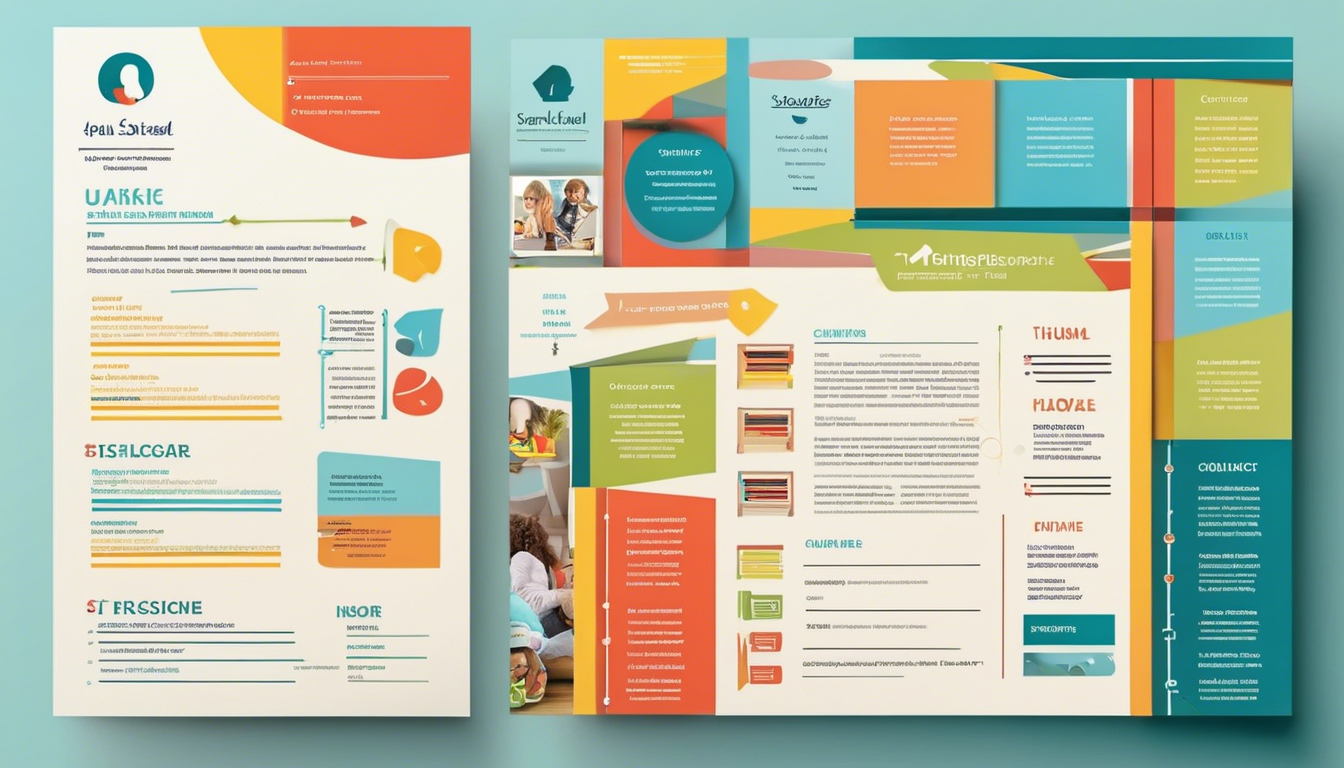In today's competitive job market, it is crucial for accountants to have a well-crafted resume that showcases their skills, experience, and qualifications. An accountant resume serves as a personal marketing tool that can make or break your chances of landing an interview. Hiring managers often receive a large number of applications and spend limited time reviewing each one, so it is essential to create a resume that stands out and effectively presents your professional capabilities.
This article will provide you with tips for creating an effective accountant resume. We will cover key components such as contact information, career objective or summary statement, professional experience, education and certifications, skills and qualifications, and achievements and awards.
By following these tips, you will be able to create a compelling resume that will impress potential employers and increase your chances of securing your dream accounting job.
I. Introduction of Accountant Job
An accountant is a professional who is responsible for maintaining and analyzing financial records, preparing financial statements, and ensuring compliance with financial regulations and tax laws.

Accountant's Duties and Responsibilities
The primary duties and responsibilities of an accountant include:
- Bookkeeping: Accountants record and maintain accurate financial records, including transactions such as revenues, expenses, assets, liabilities, and equity. They ensure that all financial data is properly categorized, coded, and entered into the accounting system.
- Financial statement preparation: Accountants prepare financial statements, such as balance sheets, income statements, cash flow statements, and statements of changes in equity. These statements provide a comprehensive picture of a company's financial position and performance.
- Tax compliance: Accountants ensure that organizations comply with relevant tax laws and regulations. They prepare and file tax returns, calculate tax liabilities, and provide guidance on tax planning strategies.
- Budgeting and forecasting: Accountants assist in the development of budgets and financial forecasts, which are essential for effective financial planning and decision-making within an organization.
- Financial analysis: Accountants analyze financial data to identify trends, assess financial performance, and provide insights and recommendations to management. They may also conduct financial ratios analysis, variance analysis, and other analytical techniques.
- Auditing: Some accountants specialize in auditing, which involves examining financial records, internal controls, and accounting processes to ensure accuracy, compliance, and the prevention of fraud or errors.
- Consulting and advisory services: Accountants may provide consulting services to businesses, helping them with financial management, cost analysis, system implementation, and other areas of financial expertise.
- Compliance and risk management: Accountants ensure that organizations comply with relevant financial regulations, such as Generally Accepted Accounting Principles (GAAP) or International Financial Reporting Standards (IFRS), and help manage financial risks.
Accountants can work in various settings, including public accounting firms, corporations, government agencies, and non-profit organizations. They may also specialize in different areas, such as tax accounting, managerial accounting, cost accounting, or auditing.
II. Key Components of an Accountant Resume
When crafting your accountant resume, it is important to pay attention to the key components that will make it a standout document. These components include your contact information, career objective or summary statement, professional experience, education and certifications, skills and qualifications, and achievements and awards.
A. Contact Information
The first section of your accountant resume should include your contact information, making it easy for potential employers to reach out to you. Include your full name, professional email address, phone number, and LinkedIn profile (if applicable). It is also crucial to ensure that your email address is professional and does not include any non-relevant information.
1. Including Essential Personal Details
Apart from your contact information, you should also provide essential personal details such as your address and professional social media handles. However, be mindful of the personal details you include and avoid sharing sensitive information such as your date of birth or social security number.
2. Ensuring Professional Email Address and Phone Number
Your email address and phone number should convey professionalism and reliability. Avoid using email addresses that include nicknames or non-professional words. Additionally, ensure that your voicemail message on your phone number is professional and reflects your interest in accounting.
B. Career Objective or Summary Statement
The career objective or summary statement is a crucial section of your accountant resume, as it provides potential employers with a quick snapshot of your experience and career goals. Craft a concise and impactful statement that showcases your skills and primary areas of expertise.
1. Crafting a Concise and Impactful Statement
Keep your career objective or summary statement brief, but powerful. Use strong action words and highlight your key strengths as an accountant. Focus on what you can bring to the table and the value you can provide to potential employers.
2. Tailoring the Objective for Specific Roles or Industries
It is important to tailor your career objective or summary statement to align with the specific role or industry you are targeting. Research the job description and company's requirements to understand what they are looking for in an accountant. Customize your statement accordingly, emphasizing the relevant skills and experiences that make you a suitable candidate for the position.
C. Professional Experience
The professional experience section of your accountant resume provides an opportunity to showcase your previous roles and responsibilities. This section helps potential employers understand your level of expertise and the value you can bring to their organization.
1. Highlighting Relevant Accounting Experience
While listing your professional experience, prioritize the roles and responsibilities that are directly related to the accounting field. Include details such as job titles, company names, employment dates, and locations. Focus on positions that demonstrate your accounting skills and experience, such as financial analysis, budgeting, or auditing.
2. Showcasing Accomplishments and Responsibilities
Rather than simply listing your job duties, highlight the accomplishments and significant contributions you made in each role. Quantify your achievements using numbers, percentages, or other measurable metrics to provide clear evidence of your capabilities. For example, mention how you implemented cost-saving measures that resulted in a specific amount of savings for the company.
3. Utilizing Action Verbs and Quantifiable Metrics
To make your professional experience section more engaging, use action verbs that convey a sense of achievement and impact. Action verbs such as "managed," "implemented," "analyzed," or "optimized" demonstrate your active role in the organization. Additionally, incorporating quantifiable metrics and specific results helps employers understand the scale and impact of your work.
D. Education and Certifications
The education and certifications section of your accountant resume plays a crucial role in showcasing your academic background and professional qualifications. This section is especially important for entry-level accountants who may not have extensive professional experience yet.
1. Listing Relevant Degrees or Certifications
Start by listing your highest level of education, such as a bachelor's or master's degree in accounting or finance. Include the name of the institution, the degree earned, and the dates of attendance. If you have obtained any specialized accounting certifications, such as CPA or CMA, make sure to include them as well.
2. Including Honors or Specialized Training
If you graduated with honors, such as magna cum laude or summa cum laude, include this information in your education section. Additionally, if you have attended any relevant training programs or workshops, especially those related to specialized accounting software or industry-specific regulations, mention them to highlight your commitment to professional development.
III. Skills and Qualifications of Accountant
To make your accountant resume more compelling, it is crucial to highlight the skills and qualifications that set you apart from other candidates. This section should include both technical accounting skills as well as soft skills that are essential in the accounting profession.
A. Technical Accounting Skills
Employers expect accountants to possess a strong foundation in technical accounting skills. These skills demonstrate your ability to handle financial data and perform critical accounting tasks.
1. Proficiency in Financial Software and Tools
Highlight your proficiency in using accounting software and tools such as QuickBooks, SAP, or Excel. Mention any specific modules or functionalities that you are experienced in, such as financial statement generation, financial analysis, or budgeting.
2. Knowledge of Accounting Principles and Regulations
Demonstrate your understanding of accounting principles and regulations, such as Generally Accepted Accounting Principles (GAAP) or International Financial Reporting Standards (IFRS). Mention any experience you have with auditing, tax planning, or financial forecasting.
B. Soft Skills for Accountants
In addition to technical accounting skills, accountants should also possess certain soft skills that are crucial for success in the field.
1. Communication and Interpersonal Abilities
Accountants often need to communicate complex financial information to clients, colleagues, or stakeholders. Highlight your ability to effectively communicate, both verbally and in writing. Emphasize your experience in preparing financial reports, presenting findings, or collaborating with cross-functional teams.
2. Attention to Detail and Strong Analytical Skills
As an accountant, attention to detail is crucial to ensure accuracy in financial records and reports. Highlight your ability to analyze large datasets, identify trends, and detect errors or inconsistencies. Mention any experience you have with data analysis tools or financial modeling.
C. Industry-Specific Skills
Depending on your specialization or the industry you are targeting, it is important to highlight any specific skills or knowledge that are relevant to the role.
1. Highlighting Specialization in Areas like Tax, Audit, or Forensic Accounting
If you have specialized in a specific area of accounting such as tax, audit, or forensic accounting, highlight this expertise. Mention any specific certifications or training you have obtained in these areas.
2. Demonstrating Knowledge of Relevant Industry Trends and Regulations
Accountants need to stay updated with the latest industry trends, regulations, and changes in accounting standards. Showcase your knowledge of current accounting practices and any recent updates in regulations or compliance requirements that are relevant to your target industry.
IV. Achievements and Awards Required for Accountant
Including any significant achievements or awards in your accountant resume can further enhance your credibility and demonstrate your commitment to excellence in the field.
If you have been recognized for your contributions or achievements in the accounting field, make sure to highlight these in the achievements and awards section. Include any relevant awards, honors, or scholarships you have received. Additionally, if you are a member of any professional accounting associations or organizations, mention them to showcase your involvement and commitment to the field.
Here are some common achievements and awards that accountants can include in their resumes under the "Achievements and Awards" section:
Recognitions in the Accounting Field:
- Certified Public Accountant (CPA) license
- Chartered Accountant (CA) designation
- Certified Management Accountant (CMA) certification
- Certified Internal Auditor (CIA) certification
- Awards or recognition from professional accounting bodies (e.g., AICPA, IMA, IIA)
- Excellence in Accounting awards from academic institutions
- Scholarships or academic honors related to accounting studies
Performance-Based Achievements:
- Employee of the Month/Year awards
- Consistent exceeding of performance targets or quotas
- Successful implementation of process improvements or cost-saving initiatives
- Recognition for exceptional client service or satisfaction
- Awards for leadership or mentoring roles within the organization
Professional Development and Continuing Education:
- Completion of specialized accounting certifications or courses
- Participation in professional development programs or workshops
- Presentations or publications in accounting journals or conferences
- Teaching or instructing accounting courses or training programs
Community Involvement and Volunteering:
- Volunteering for non-profit organizations in accounting or finance roles
- Participating in community outreach programs related to financial literacy
- Serving on boards or committees of professional accounting organizations
When listing these achievements and awards, provide specific details such as the name of the award, the awarding organization, and the year received. Quantify your accomplishments whenever possible, as this adds more credibility to your achievements.
V. Build Accountant's Resume With TalenCat CV Maker
If you want to build a professional resume for an accountant job, TalenCat CV Maker is the best option. With TalenCat CV Maker's intuitive resume editor, you can use the various resume templates to make your resume look better, and easily build your resume in minutes.
Also, if you have some trouble writing content, its AI generator can be very helpful for you.
Step 1. Log in to TalenCat CV Maker, and click the "+ Create Resume" button in the top right corner to create a new resume.

Step 2. Then you need to name this resume and click the "Create" or "Create with Example" button.

- Create: You can start your creation with a completely blank resume, you need to fill in everything for your resume.
- Create with Example: You can start resume creating with a ready-to-use resume, you can change any content if it doesn't match you.
Step 3. You will get into a reactive CV editor, you can fill in your detailed information, and any content you enter will be immediately displayed in the right panel to let you have an overview of your resume.

Once you get your resume creation or editing done, you can easily export it as a PDF file or picture.
Also, you can turn on the "online share" feature to get an online link of your resume, then you can easily share your resume with others using this link.

VI. Summary
In conclusion, creating an effective accountant resume is crucial for standing out in the competitive job market. By following the tips outlined in this article, you can craft a compelling resume that showcases your skills, experience, qualifications, and achievements. Remember to include clear and professional contact information, a well-crafted career objective or summary, detailed professional experience with quantifiable accomplishments, relevant education and certifications, essential technical and soft skills, and any notable achievements or awards.
Additionally, consider utilizing tools - TalenCat CV Maker to streamline the resume creation process and ensure a polished final product. With a strong, well-organized resume, you can increase your chances of securing interviews and landing your desired accounting position.




